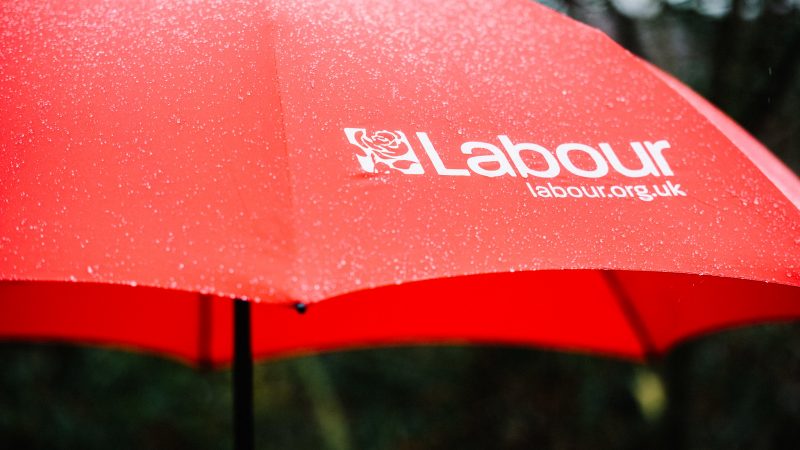
I was one of the 22 national executive committee (NEC) members who voted for Keir Starmer and Shabana Mahmood’s motion to withdraw endorsement as a Labour parliamentary candidate from Jeremy Corbyn.
You can’t disentangle the party’s catastrophic electoral defeat in the 2019 general election from Jeremy’s failure to tackle antisemitism in the party. This fatally damaged our brand as the party that stands for justice, equality and antiracism. It turned the public’s understanding of Labour’s values on its head, and combined with Jeremy’s bizarre response to the Skripal poisoning, made people fear what a Labour government would be like. Had Jeremy showed appropriate contrition for what happened on his watch, or merely stayed silent, he could have continued on the Labour backbenches as an uncomfortable but irremovable reminder of a dark period in the party’s history.
Unfortunately, as the party struggled to deal with his legacy, he chose to fight to defend it. Labour faced the darkest day in its history in October 2020 when the Equality and Human Rights Commission found the party guilty of unlawful acts of discrimination and harassment against its own Jewish members, citing “serious failings in the Labour Party leadership in addressing antisemitism”. Even as Keir Starmer tried to apologise on behalf of the party, Jeremy Corbyn undermined him by saying the problem of antisemitism was “dramatically overstated for political reasons” by his opponents and “I do not accept all of [the EHRC report’s] findings”. The party did not expel Jeremy for this, as that would have been legally viewed as disproportionate, but the parliamentary whip was removed from him, and the then chief whip set conditions, including an apology and removal of a Facebook post, for readmission.
Jeremy has had two and a half years to do this but hasn’t done any of the simple actions required. It is now obvious he had no intention of doing so. He and many of his supporters have chosen Labour’s antisemitism crisis – the one issue on which they most needed to show contrition, learn from their mistakes and make political changes to make his brand of Labour viable again – as the political hill they want to metaphorically die on. Some activists want to rewrite history to say antisemitism in Labour was exaggerated, or a scam or a Zionist conspiracy (itself an antisemitic trope) and deny the lived experience of Jewish members, which has been upheld in law by the UK’s equalities watchdog.
We could not continue to kick this can down the road. If the NEC hadn’t acted now, there was no prospect of Jeremy taking the actions needed to restore the whip to him, or of it looking remotely sincere if he did, so he would have remained suspended from the Parliamentary Labour Party and the NEC would have faced a similar decision on whether he could be a Labour candidate but at the point when the general election was called, causing immense distraction just when we would be launching our campaign and manifesto.
There will undoubtedly be members and other supporters of Jeremy who will be incredibly angry about this decision. They need to turn to Jeremy and ask why he put them and himself in this situation. No one made him fail to deal with the original antisemitism crisis. No one made him speak out in such a damaging way in October 2020. No one made him fail to take the actions needed to get the whip back. These were all political choices he made that damaged the Labour Party and continue to damage his own strand of socialist politics.
There are many other members who have been demanding to know why we didn’t as an NEC take decisive action on this earlier. Two and a half years is a lot of leeway to give someone. Millions of voters want to know Labour has decisively and irreversibly changed from the Corbyn years. I’ve had target seat candidates complain to me that inaction on Jeremy’s behaviour has meant that the potential switchers they talk to, voters who might move from Tory to Labour, are held back by worries that Labour hasn’t comprehensively changed and could slide back into the politics of 2015-2019.
How could we possibly have gone into a general election with Keir saying we had dealt with antisemitism, restored our moral foundations and moved on from the failed politics of 2019, if we had turned a blind eye to Jeremy saying the problems had been “dramatically overstated for political reasons” and he was there in our line-up of parliamentary candidates? Every press conference would have involved questions about Jeremy’s candidature and whether this undermined the sincerity of Keir’s claims about tackling antisemitism.
This doesn’t set a precedent for other leaders who lose elections, because no other Labour leader has behaved in such a way after leaving office as to keep drawing public attention back to the reasons why the public voted against Labour and undermining their successor’s attempts to move the party on.
Jeremy Corbyn remains an individual member of the Labour Party so long as he does not stand against Labour. If he cares about the party he led for five years, I would urge him not to stand against us. Instead to gracefully retire from the political field, and even now deal with some of the grave damage he inflicted on his own and Labour’s reputation by belatedly properly apologising for the failure to tackle antisemitism on his watch and accepting his ultimate responsibility for this moral and political tragedy.




More from LabourList
‘I was wrong on the doorstep in Gorton and Denton. I, and all of us, need to listen properly’
‘Why solidarity with Ukraine still matters’
‘Ukraine is Europe’s frontier – and Labour must stay resolute in its defence’